You’re looking at your electricity bill, and it just keeps getting higher every month. You’ve tried to cut back on the AC; you only use your dishwasher twice a week and unplug appliances when not in use. And yet, the bills keep getting higher. You’ve thought about getting solar, but you’re worried about the upfront costs and whether it will really make a difference. The HBCU Clean Energy Initiative has some answers that will make your choice easier. Here are five of the best reasons to go green.
1. Home Values Increase
According to research recently done by Zillow, adding solar can potentially increase your home’s value by up to 4.1% compared to similar homes with no solar panels. That’s an additional $9,274 for the median-valued home in the U.S., which could be higher depending on where you live. People are increasingly looking for ways to live greener and at lower costs, making solar homes a very attractive option.
2. Panel Costs Have Decreased
According to the Solar Energy Industries Association, prices of residential solar panel systems have dropped by an annual average of more than 60% over the past decade — from upwards of $50,000 for a 6-kilowatt-hour (KWh) system in 2011 to between $16,000 and $21,000 in 2021. In addition, there are Federal tax rebates as well as rebates in certain states as well.
3. Monthly Cost Savings
While the actual amount of cost savings will vary depending on factors such as roof size, sunlight exposure, local utility rates, etc., the fact is that your monthly costs will decrease. A Sunrun spokesperson said, “Based on a predicted annual utility rate of around 3%— solar customers see an average utility bill savings of anywhere from 10% to 40%.” Solar contracts include a fixed price of energy per kilowatt/hour that is typically lower than utility rates in most regions across the U.S. Another source predicts that, on average, U.S. customers save about $1,500 a year by going solar – $37,500 over 25 years. But for individual solar energy systems, these savings can vary from $10,000 – $90,000 depending on some of the factors described above.
4. Consistency in Utility Bills
With the recently increased fuel prices, you don’t know how your electricity bill will change month to month. Depending on limited energy sources like fossil fuels is not only bad for the environment but your costs are based on market fluctuations that rise according to demand. In addition, as the planet warms, chances are that summers will get hotter, and most of us will need to use air conditioning more often. That puts additional burdens on the energy grid, which could lead to blackouts. With solar, you are not dependent on anything but the sun’s power and the ability to store that energy.
5. National Security
Okay, this may seem like a stretch but hear us out. Conflicts occur worldwide, such as the situation between Ukraine and Russia, which affect energy prices and supply. Currently, the U.S. imports 37% of its energy and only has proven reserves equivalent to 4.9 times its annual consumption. This means that, without imports, there would be about 5 years of oil left (at current consumption levels and excluding unproven reserves). While the U.S. could ramp up energy production of oil and natural gas, that would lead to increased environmental stress. Climate change is already affecting everything from food supply to increases in weather-related incidents to species extinction. On the other hand, the sun has a limitless supply, does not contribute to global warming, and completely eliminates our energy dependence on other countries.
Summary
So, while going green is good for the planet and our country, it also benefits you personally. It can save you money, increase your home’s value, make you less dependent on our overstressed energy grid, and maintain consistency in your monthly costs.
If you’re ready to go solar, click here to find out whether leasing or buying solar panels is the right choice.
Click here to learn more about how the HBCU Clean Energy Initiative is helping lower- and middle-income communities go solar.
To read more HBCU Clean Energy Initiative blogs, click here.

